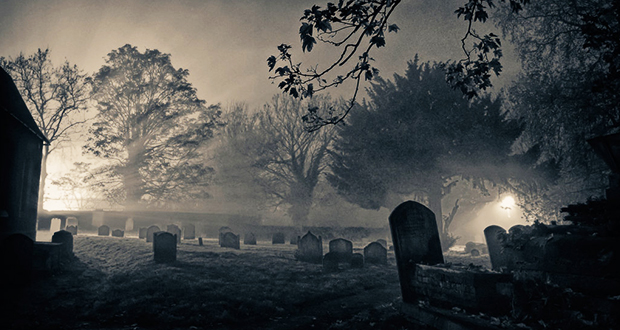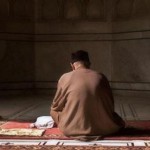In the previous article, The Great Loss of the One who does not Pray, we discussed the worldly loss of a person who neglects their Ṣalāh. We explored the Ṣalāh in its relation to Īmān, as an unparalleled act of worship, as a treasure of this Dunya, as being equated to a person’s family and wealth and as a form of protection in their everyday lives. In this article we discuss the loss of such a person in the Hereafter where the consequences of our actions are ever more severe. May Allāh make this of benefit to us and help us be steadfast in our prayer.
Ṣalāh and the washing away of sins
The Prophet (sall Allāhu ʿalayhi wa sallam) said,
إِذَا تَوَضَّأ العَبْدُ المُسْلِمُ – أَو المُؤْمِنُ – فَغَسَلَ وَجْهَهُ ، خَرَجَ مِنْ وَجْهِهِ كُلُّ خَطِيئَةٍ نَظَرَ إِلَيْهَا بِعَيْنَيْهِ مَعَ المَاءِ ، أَوْ مَعَ آخِرِ قَطْرِ المَاءِ ، فَإذَا غَسَلَ يَدَيْهِ ، خَرَجَ مِنْ يَدَيْهِ كُلُّ خَطِيئَةٍ كَانَ بَطَشَتْهَا يَدَاهُ مَعَ المَاءِ ، أَو مَعَ آخِرِ قَطْرِ المَاءِ ، فَإذَا غَسَلَ رِجْلَيْهِ ، خَرَجَتْ كُلُّ خَطِيئَةٍ مَشَتْهَا رِجْلاَهُ مَعَ المَاءِ ، أَو مَعَ آخِرِ قَطْرِ المَاءِ ، حَتَّى يَخْرُجَ نَقِيَّاً مِنَ الذُّنُوبِ
“When the Muslim performs wudhūʿ and washes his face, every wrong thing that he looked at with his eyes falls out from his face with the water or with the last drop of water. And when he washes his hands, every wrong thing that he did with them falls out from his hands with the water or with the last drop of water. And when he washes his feet every wrong thing that he walked to with his feet falls out from his feet with the water or with the last drop of water, until he exits having been cleansed of all sin.”[1]
In fact, the Prophet (sall Allāhu ʿalayhi wa sallam) said,
إن العبد إذا قام يصلي أتي بذنوبه كلها فوضعت على رأسه و عاتقيه فكلما ركع أو سجد تساقطت عنه
“When a person stands up in prayer, all of his sins are brought forth and are placed on his head and shoulders. So that every time he falls in bowing or prostration, his sins fall away from him.”[2]
How much, then, has the one who misses his prayer actually lost? He has missed out on daily opportunities to lighten some of that luggage of sins that weighs down so heavily on his back.
Let us consider something as small as a tooth and the damage it can cause to one’s health if left without being cleansed. At first, a thin film of plaque will form around the teeth. Day two, bad breath begins to set in. By day 3 to a week, gums turn unusually red, gum disease begins and now they bleed very easily. By about a month, white spots begin to appear on these teeth which indicate enamel decalcification, or tooth decay. By the time a year has elapsed, the gums are severely inflamed and holes form through the teeth. A few years down the line, teeth may start to fall out.
It gets worse, recent studies have suggested that there may be a link between poor dental health and dementia, pneumonia, kidney disease, diabetes, brain abscess, pregnancy complications and cancer.[3]
These are the cumulative effects of merely not cleaning one’s teeth. Thus we ask, what is the effect of not cleansing one’s entire self of sins? Just how much has the one who misses his prayer actually lost? Sins are left to fester and their damaging effects only worsen, for sins even blacken stones. The Prophet (sall Allāhu ʿalayhi wa sallam) told us:
نزل الحجرُ الأسودُ مِن الجنةِ وهو أشدُّ بياضًا مِن اللبنِ، فسوَّدَتْه خطايا بني آدمَ
“The black stone was brought down from Paradise whiter in colour than milk, but it became black due to the sins of man.”[4]
And so I ask, if sins can blacken stone, what then do you make of their effects on the heart of man? As such, it is not strange to hear of a person who misses his Ṣalāh complaining from a sense of darkness and loneliness, where he finds himself in tears of despair, though he cannot determine the exact cause of his misery. He had forgotten, however, that the sins of his eyes are still there, and the sins of his hands are still there, and the sins of the feet are still there, and their presence will have their bearing on him in both worlds.
The Prophet (sall Allāhu ʿalayhi wa sallam) said,
تَحْتَرِقُونَ، تَحْتَرِقُونَ، فَإِذَا صَلَّيْتُمُ الْفَجْرَ غَسَلَتْهَا، ثُمَّ تَحْتَرِقُونَ تَحْتَرِقُونَ، فَإِذَا صَلَّيْتُمُ الظُّهْرَ غَسَلَتْهَا، ثُمَّ تَحْتَرِقُونَ تَحْتَرِقُونَ، فَإِذَا صَلَّيْتُمُ الْعَصْرَ غَسَلَتْهَا، ثُمَّ تَحْتَرِقُونَ تَحْتَرِقُونَ، فَإِذَا صَلَّيْتُمُ الْمَغْرِبَ غَسَلَتْهَا، ثُمَّ تَحْتَرِقُونَ تَحْتَرِقُونَ، فَإِذَا صَلَّيْتُمُ الْعِشَاءَ غَسَلَتْهَا، ثُمَّ تَنَامُونَ فَلَا يُكْتَبُ عَلَيْكُمْ شَيْءٌ حَتَّى تَسْتَيْقِظُونَ
“You burn, you burn (i.e. you sin) then you pray the prayer of Fajr and it washes it. Then you burn, you burn then you pray the prayer of ẓuhr and it washes this. Then you burn, you burn then you pray the prayer of ʿAsr and it washes this. Then you burn, you burn then you pray the prayer of the Maghrib and it washes this. Then you burn, you burn then you pray the prayer of ʿIshā’ and it washes this. Then you sleep and no sin is written against you until you wake up the next morning.”[5]
These sins are like fire which burn within us, a burning which we feel and a heat which we really do experience in the form of sadness and misery. Thus the Prophet (sall Allāhu ʿalayhi wa sallam) said,
يُبعَثُ مُنادٍ عند حضرةِ كلِّ صلاةٍ فيقول : يا بني آدمَ قُوموا فأَطفِئوا عنكم ما أَوقَدتُم على أنفُسِكم فَيَقُومُونَ فَيَتَطَهَّرُونَ وَيُصَلُّونَ فَيُغْفَرُ لَهُمْ مَا بَيْنَهُمَا، فَإِذَا حَضَرَتِ الْعَصْرُ فَمِثْلُ ذَلِكَ، فَإِذَا حَضَرَتِ الْمَغْرِبُ فَمِثْلُ ذَلِكَ، فَإِذَا حَضَرَتِ الْعَتَمَةُ فَمِثْلُ ذَلِكَ، فَيَنَامُونَ وَقَدْ غُفِرَ لَهُمْ “، ثُمَّ قَالَ رَسُولُ اللهِ صَلَّى اللهُ عَلَيْهِ وَسَلَّمَ: «فَمُدْلِجٌ فِي خَيْرٍ، وَمُدْلِجٌ فِي شَرٍّ»
“A caller makes an announcement when every prayer arrives, saying: ‘O sons of Ādam, get up and put out the fire that you have ignited against yourselves!’ So they get up and do wudhūʿ and pray and thus their sins that they had committed between the two prayers are wiped away. When ʿAsr arrives, the same happens. When Maghrib arrives, the same happens. When ʿIshā’ arrives, the same happens. Thus they sleep that evening without sins.” The Prophet (sall Allāhu ʿalayhi wa sallam) then concluded by saying, “Thus that evening for some people is of goodness whilst for others, it is an evening of evil.”[6]
The Ṣalāh actively cleanses a person from the weight of sins that we accumulate and thus allows the heart to shine once again with happiness and joy. But without Ṣalāh, where will the sins go? Nowhere. They remain put and continue scarring this individual. True happiness can therefore never truly be reached without Ṣalāh. For this reason, our Prophet (sall Allāhu ʿalayhi wa sallam) would say,
وَجُعِلَتْ قُرَّةُ عَيْنِي فِي الصَّلَاةِ
“My happiness has been placed in prayer.”[7]
Ṣalāh and Divine hospitality
The Prophet (sall Allāhu ʿalayhi wa sallam) said,
مَنْ غَدَا إِلَى المَسْجِد أَوْ رَاحَ، أَعَدَّ اللهُ لَهُ في الجَنَّةِ نُزُلًا كُلَّمَا غَدَا أَوْ رَاحَ
“Whoever goes to the Mosque to pray in the morning or the afternoon, Allāh will prepare for him a Nuzul in Paradise every time he goes in the morning or the afternoon.”[8]
What is a Nuzul? It is( ما يعد ويهيأ للضيف )the food, drink and preparations which a host makes for his guest. Considering this, how much has the one who misses his prayer actually lost? For, there are certain families whom we love to receive invitations from much more than others as we know that their dinner tables will be busy. One can thus only imagine the type of hospitality when the host is none other than The King, The Most Rich, The Most Generous Himself?
Ṣalāh and guarantees from Allāh
The Prophet (sall Allāhu ʿalayhi wa sallam) said,
ثَلَاثَةٌ كُلُّهُمْ ضَامِنٌ عَلَى اللَّهِ إِنْ عَاشَ رُزِقَ وَكُفِيَ وَإِنْ مَاتَ أَدْخَلَهُ اللَّهُ الْجَنَّةَ (ومنهم) مَن خرَج إلى المسجدِ فهو ضامنٌ على اللهِ
“There are three categories of people, each one of them has a guarantee from Allāh that if they live, they will be provided for and protected and if they die, Allāh will enter them into Jannah.” One of the three were: “A person who leaves to pray in the Masjid, then such a person has this guarantee from Allāh.”[9]
Thus we ask, how much has the one who misses his prayer actually lost? He has lost out on such a guarantee.
Ṣalāh and your ID on the Day of Judgement
Abū Huraira narrates that,
أنَّ رسولَ اللهِ صلَّى اللهُ عليهِ وسلَّمَ أتى المقبرةَ فقال : السلامُ عليكُمْ دارَ قومٍ مُؤمنينَ . وإنا، إنْ شاء اللهُ، بكمْ لاحقونَ . وددتُ أنا قدْ رأينا إخوانَنا قالوا : أولسنَا إخوانَك يا رسولَ اللهِ ؟ قال أنتمْ أصحابي . وإخوانُنا الذين لمْ يأتوا بعدُ . فقالوا : كيفَ تعرفُ منْ لم يأتِ بعدُ من أمتكِ يا رسولِ اللهِ ؟ فقال أرأيتَ لو أنَّ رجلًا لهُ خيلٌ غرٌّ محجَّلةٌ . بين ظهرِي خيلٍ دهمٍ بهمْ . ألا يعرف خيلَهُ ؟ قالوا : بلى . يا رسولَ اللهِ ! قال فإنهمْ يأتونَ غرًا مُحجَّلينَ منَ الوضوءِ .
“The Messenger of Allāh (sall Allāhu ʿalayhi wa sallam) went to the cemetery and said, “Asalāmu ʿalaikum, O believing dwellers. We, if Allāh wills, will follow you soon. I wish that I had met my brothers.” The companions said, “O Messenger of Allāh, are we not your brothers?” He said, “You are my companions, but my brothers are those who have not come into the world yet.” They said, “O Messenger of Allāh, how will you recognise those of your Ummah who are not born yet?” He said, “If a man has white-footed horses with white foreheads among horses which are pure black, will he not recognize his own horses?” They said; “Certainly, O Messenger of Allāh.” He said, “Similarly, my followers will come with bright faces and white limbs on the Day of Judgement due to the effects of Wudhūʿ.” [10]
With regard to their station in the Hereafter, on the Day of Judgement where our ultimate goal will be to be identified as the believing people, as those who please Allāh and follows His Messenger, how much has the one who misses his prayer actually lost? He has lost out on the sign which the Prophet (sall Allāhu ʿalayhi wa sallam) will be looking for on the Day of Judgement to recognise his people by. In the absence of this hallmark, with what face will such a person approach the Prophet (sall Allāhu ʿalayhi wa sallam) on this difficult day?
Ṣalāh and light on the Day of Judgement
The Prophet (sall Allāhu ʿalayhi wa sallam) said,
بشِّرِ المشَّائينَ بالظُّلَمِ إلى المساجدِ بالنُّورِ التَّامِّ يومَ القيامةِ
“Give good news to those who walk to the Masjid at night that their light on the Day of Judgement will be full.”[11]
This light is Mutlaq, a light that exists in its absolute sense. It is a light in the face and heart of a person, light in his grave and light on the Day of Judgement, one which will illuminate his way until he enters Paradise. For, despite the allures of this world and its distractions this person remembered his Lord, remembered his obligation, remembered to pray, and did so.
The Prophet (sall Allāhu ʿalayhi wa sallam) also said,
مَن حافظَ عليها كانت لَهُ نورًا وبرهانًا ونَجاةًيومَ القيامةِ، ومن لم يحافِظ عليها، لم يَكُن لَهُ نورٌ ولا برهانٌ ولا نجاةٌ وَكانَ يومَ القيامةِ معَ قارونَ وفرعونَ وَهامانَ وأبيِّ بنِ خلفٍ
“Whoever takes care of his Ṣalāh, it will be for him a source of light, a proof and a means of safety of the Day of Judgement. As for the one who does not take care of it, he will have no light, no evidence and no safety and will be resurrected with Qārūn, Firʿoun, Hāmān and Ubay b. Khalaf.”[12]
The worst of all creation.
How much has the one who misses his prayer lost?
Clearly, the one who neglects his prayer, has lost out on everything that constitutes as success in this world and the next. In both this life, with its promise of protection, barakah, light, and provision, and in the next by way of protection in the grave, a light on the Day of Judgement, and its guarantee of closeness to Allāh, the one who does not pray has most certainly lost. The one who upholds his prayer has gained the most hopeful good deed that a person could possibly present to Allāh on the Day of Standing.
[donationbanner]
Source: www.islam21c.com
Notes:
[1] Saḥīḥ Muslim on the authority of Abū Huraira
[2] Narrated by al-Bayhaqi, Abū Nu’aym and others, with an authentic chain of narration (as stated by Al-Albany) on the authority of ʿAbdullāh b. ʿUmar
[3] http://uk.businessinsider.com/what-happens-if-you-dont-brush-and-floss-your-teeth-2014-2?r=US&IR=T
[4] Narrated by At-Tirmithi in his ‘Sunan’, on the authority of Ibnu ʿAbbās
[5] Narrated by At-Tabārani, on the authority of Ibnu Masʿūd
[6] Narrated by At-Tabarāni, on the authority of Ibnu Masʿūd
[7] Narrated by Aḥmed in his Musnad, on the authority of Anas
[8] Narrated by Bukhārī and Muslim, on the authority of Abū Huraira
[9] Narrated by Ibnu Hibbān in his ‘Saḥīḥ’, on the authority of Abū Umāma
[10] Narrated by Muslim, on the authority of Abū Huraira
[11] Narrated by Ibnu Mājah in his ‘Sunan’, on the authority of Anas
[12] Narrated by Al-Haythami in his ‘Majma’ Az-Zawaa’id’, on the authority of ʿAbdullāhi Ibnu ʿAmr










I have no words to describe how deeply this affected me. It made me cry so much. Your reward is Allah and I pray that he accepts all your efforts. Thank you so much for taking the time to write this. Please don’t stop being who you are and sharing your knowledge. You’ve brought light to a darkened heart.
May He be pleased with you and your family.
Masha Allah, the writer has been blessed with a thought process and writing style that can move hearts.
Jazakallah khair
Wow, MashaAllah what else can I say. Such an emaan booster.
Allah ho Akhbar.